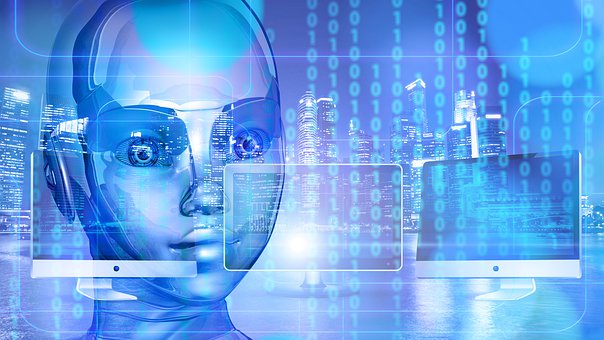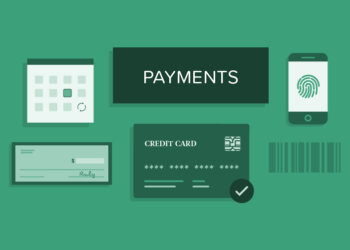The digital marketing landscape is experiencing a revolutionary shift, largely driven by the integration of artificial intelligence (AI) into marketing strategies. AI-powered tools are no longer a futuristic concept; they have become essential instruments in modern marketing arsenals. These technologies are transforming how companies understand consumer behavior, optimize campaigns, and personalize customer experiences. In this article, we will delve into how AI-powered tools are reshaping digital marketing, exploring the evolution of these technologies, the benefits they provide, the challenges marketers face, and best practices for implementation. This comprehensive guide is designed for business leaders, digital marketing professionals, and tech enthusiasts looking to harness the power of AI to drive growth and improve engagement.
The Evolution of Digital Marketing
Digital marketing has evolved significantly over the past decade. Initially, marketers relied on manual data analysis, basic SEO techniques, and rudimentary automation. With the advent of AI, these traditional methods have given way to more sophisticated strategies that leverage machine learning algorithms, natural language processing, and real-time data analysis. Today’s AI-powered tools can predict trends, automate repetitive tasks, and provide deep insights into customer behavior.
Historically, digital marketing was marked by:
A. Manual Data Analysis: Marketers had to sift through data manually to extract insights.
B. Static Content Strategies: Content was often created without dynamic personalization.
C. Basic Automation: Automation was limited to scheduled email sends and simple ad management.
D. Limited Customer Segmentation: Segmentation was based on basic demographics rather than behavioral data.
The introduction of AI has revolutionized each of these areas. Modern AI tools analyze vast amounts of data in seconds, tailor content to individual preferences, and optimize advertising campaigns in real time. This transformation has led to increased efficiency, improved targeting, and ultimately, a better return on investment (ROI).
How AI Transforms Digital Marketing
AI has permeated every facet of digital marketing, from content creation to customer relationship management. Its applications are diverse, and its impact is profound. Here, we explore several core areas where AI is making a difference.
A. Enhanced Data Analytics
Data is the lifeblood of digital marketing, and AI tools provide unprecedented capabilities in data collection and analysis. Advanced algorithms can interpret complex data sets to identify patterns and trends that were previously undetectable. These insights empower marketers to make data-driven decisions and refine their strategies continuously.
- Real-Time Insights: AI algorithms analyze data as it streams in, allowing marketers to adjust campaigns on the fly.
- Predictive Analytics: By forecasting future trends based on historical data, companies can anticipate market changes and consumer behavior.
- Customer Segmentation: AI refines segmentation processes by analyzing behaviors, preferences, and purchase histories, resulting in highly targeted campaigns.
B. Personalization at Scale
One of the most significant advantages of AI in digital marketing is its ability to deliver personalized experiences at scale. Instead of employing a one-size-fits-all approach, businesses can now tailor content and recommendations to each individual customer.
- Customized Content Delivery: AI analyzes user behavior to serve personalized content recommendations across websites, emails, and social media.
- Dynamic Website Experiences: Websites can now adjust in real time to display content relevant to the visitor’s interests, location, or browsing history.
- Tailored Advertising: With AI, ad platforms can create dynamic ads that change based on user interaction and demographic data, increasing engagement and conversion rates.
C. Marketing Automation
Marketing automation has been around for a while, but AI has taken it to new heights by making processes smarter and more adaptive. Automated systems can now learn from interactions and optimize campaigns without continuous human intervention.
- Email Campaign Optimization: AI algorithms can determine the best time to send emails, the most effective subject lines, and even tailor the content based on recipient behavior.
- Ad Spend Management: By analyzing ad performance data in real time, AI tools can adjust bids and allocate budgets more effectively to maximize ROI.
- Customer Journey Automation: AI tracks customer interactions across multiple channels, ensuring that marketing efforts are synchronized and personalized at every touchpoint.
D. Content Generation and Curation
Creating high-quality, engaging content consistently is a challenge for many marketers. AI-powered content creation tools are emerging as invaluable allies in this process, helping to generate ideas, draft articles, and curate content that resonates with target audiences.
- Natural Language Generation (NLG): AI systems can produce coherent and contextually relevant articles, social media posts, and product descriptions.
- Content Curation: By sifting through vast amounts of online content, AI helps marketers discover relevant articles, videos, and infographics that can be shared or repurposed.
- SEO Optimization: AI tools analyze search trends and keyword performance to suggest content topics that are more likely to rank well on search engines.
E. Customer Service and Chatbots
Customer service is a critical component of digital marketing, and AI-powered chatbots have revolutionized this field. They provide 24/7 support, ensuring that customer queries are addressed promptly, which enhances user satisfaction and builds brand loyalty.
- Instant Response: Chatbots can handle multiple customer inquiries simultaneously, providing immediate assistance.
- Personalized Interaction: With AI, chatbots learn from past interactions to offer more relevant responses and anticipate future needs.
- Cost Efficiency: Automating customer support reduces the need for large customer service teams, leading to significant cost savings.
Benefits of AI-Powered Digital Marketing Tools
Adopting AI-powered tools in digital marketing brings numerous advantages. These benefits not only enhance operational efficiency but also drive better results in terms of customer engagement and revenue generation.
A. Increased Efficiency and Productivity
AI automates repetitive tasks, freeing up valuable time for marketers to focus on strategy and creativity. This shift leads to significant improvements in overall productivity.
- Automated Reporting: AI tools generate detailed performance reports without manual input.
- Streamlined Campaign Management: With automation, marketers can set up and monitor campaigns more efficiently.
- Resource Optimization: By handling routine tasks, AI allows human resources to be redirected towards more strategic initiatives.
B. Enhanced Decision Making
The insights provided by AI analytics enable marketers to make informed decisions based on data rather than intuition. This leads to more effective campaign adjustments and improved ROI.
- Data-Driven Strategies: Real-time data analysis helps in making adjustments that align with current market trends.
- Predictive Modeling: Forecasting future trends allows companies to stay ahead of the curve.
- Performance Tracking: Continuous monitoring of campaigns helps in identifying areas for improvement quickly.
C. Better Customer Engagement
Personalized marketing strategies driven by AI lead to higher engagement rates. When customers receive content that resonates with their interests, they are more likely to interact with the brand.
- Targeted Communication: AI segments audiences finely, ensuring that each group receives tailored messages.
- Interactive Experiences: Dynamic content and personalized recommendations keep customers engaged.
- Higher Conversion Rates: Personalized ads and content have been shown to drive higher conversion rates compared to generic approaches.
D. Cost Savings and Increased ROI
While implementing AI-powered tools might require an initial investment, the long-term benefits include significant cost savings and a higher return on investment. AI reduces the need for large marketing teams and minimizes wasted ad spend through better targeting.
- Reduced Operational Costs: Automation cuts down on the time and resources needed for campaign management.
- Optimized Ad Spending: AI adjusts bids and budgets in real time, ensuring maximum efficiency.
- Improved Sales Funnel: Better lead nurturing and targeted marketing result in higher conversion rates and sales.
Challenges and Considerations
Despite the many benefits, integrating AI into digital marketing does come with challenges. Understanding and addressing these issues is critical to leveraging AI successfully.
A. Data Privacy and Security
As AI tools rely heavily on data, ensuring the privacy and security of customer information is paramount. Marketers must navigate regulatory landscapes such as GDPR and CCPA while ensuring that their data practices are ethical and secure.
- Regulatory Compliance: Businesses must adhere to data protection laws to avoid penalties.
- Secure Data Storage: Implementing robust cybersecurity measures is essential to protect sensitive information.
- Transparent Data Policies: Clear communication with customers about data usage helps build trust.
B. Integration with Existing Systems
Adopting AI tools often requires integration with existing marketing platforms and technologies. This process can be complex and may require substantial technical expertise.
- System Compatibility: Ensure that new AI tools can seamlessly integrate with current systems.
- Training and Onboarding: Employees need to be trained to use new technologies effectively.
- Cost and Time Investment: Integration may require significant resources, both in terms of time and money.
C. Dependence on Data Quality
AI’s effectiveness is directly linked to the quality of the data it processes. Inaccurate or incomplete data can lead to poor decision-making and ineffective marketing strategies.
- Data Cleaning: Regularly update and clean data to ensure accuracy.
- Data Integration: Ensure data from various sources is harmonized for optimal analysis.
- Quality Assurance: Implement checks and balances to maintain high data quality.
D. Balancing Automation and Human Touch
While AI can handle many tasks, the human element remains crucial in digital marketing. Creativity, empathy, and strategic thinking are aspects that AI cannot fully replicate.
- Hybrid Strategies: Combine AI automation with human creativity for optimal results.
- Personal Relationships: Ensure that automated systems do not replace genuine human interactions.
- Continuous Oversight: Regularly review AI outputs to maintain alignment with brand voice and values.
Case Studies: Real-World Impact of AI-Powered Marketing
To better understand the practical benefits of AI in digital marketing, let’s examine some case studies that highlight its transformative impact.
A. E-Commerce Giant
A leading e-commerce company integrated AI-powered analytics and personalization tools into its digital marketing strategy. The company used AI to analyze customer behavior, predict trends, and optimize product recommendations. As a result:
- Sales increased significantly due to more personalized shopping experiences.
- Ad spend was reduced by reallocating budgets based on real-time performance data.
- Customer retention improved, with targeted email campaigns driving repeat purchases.
B. Global Financial Institution
A multinational bank adopted AI-powered chatbots and customer service automation to enhance its digital presence. The implementation led to:
- Faster response times for customer inquiries.
- A reduction in operational costs by automating routine tasks.
- Higher customer satisfaction scores due to 24/7 availability and personalized interactions.
C. Digital Media Agency
A digital marketing agency leveraged AI tools for content creation, SEO optimization, and ad performance analysis. The benefits included:
- Improved content relevance and higher organic search rankings.
- More effective ad campaigns, driven by data-backed insights.
- Enhanced client reporting, with real-time dashboards providing transparency and actionable insights.
Future Trends in AI and Digital Marketing
The rapid pace of technological innovation means that the role of AI in digital marketing will continue to expand. Future trends point to even more sophisticated applications that further bridge the gap between technology and creativity.
A. Advanced Predictive Analytics
Future AI systems will be even better at predicting customer behavior and market trends. These systems will incorporate real-time social media data, sentiment analysis, and broader economic indicators to forecast consumer actions more accurately.
B. Voice and Visual Search Optimization
As voice assistants and visual search technologies become more prevalent, AI tools will adapt to optimize content for these platforms. Marketers will need to rethink their SEO strategies to include voice-friendly keywords and visually engaging content.
C. Hyper-Personalization
The next phase of personalization will move beyond simple segmentation. AI will enable hyper-personalized marketing strategies that consider not only past behavior but also real-time context and mood, delivering content that feels uniquely tailored to each individual.
D. Integration of Augmented Reality (AR)
Augmented Reality (AR) integrated with AI will create immersive marketing experiences. For example, virtual try-ons and interactive product demonstrations will allow customers to experience products in a digital space, increasing engagement and conversion rates.
E. Enhanced Automation and Decision-Making
AI-driven automation will continue to evolve, taking on more complex tasks and decision-making processes. This evolution will free up marketers to focus on strategic initiatives while AI handles day-to-day operations with greater efficiency and accuracy.
Best Practices for Implementing AI-Powered Marketing Tools
To harness the full potential of AI in digital marketing, organizations need a clear strategy and best practices for implementation. Below are key guidelines:
A. Define Clear Objectives
- Set Measurable Goals: Establish what you want to achieve—whether it’s higher conversion rates, improved customer engagement, or cost savings.
- Align with Business Strategy: Ensure that AI initiatives support overall business objectives.
B. Invest in Quality Data
- Data Collection: Implement systems to gather accurate and comprehensive data.
- Data Management: Use robust data management practices to ensure that the data feeding into AI tools is clean and up to date.
C. Choose the Right Tools
- Evaluate Options: Research and select AI tools that best meet your needs, considering factors such as integration capabilities and scalability.
- Pilot Programs: Start with pilot programs to test the effectiveness of AI solutions before a full-scale rollout.
D. Train Your Team
- Comprehensive Training: Offer regular training sessions for employees to get acquainted with AI-powered tools.
- Skill Development: Invest in upskilling your team to handle advanced analytics and automation.
E. Monitor and Optimize
- Continuous Monitoring: Use dashboards and regular reports to track the performance of AI initiatives.
- Iterative Improvement: Adjust strategies based on performance data to maximize the benefits of AI tools.
F. Maintain a Human Touch
- Balance Automation: Ensure that while AI handles routine tasks, human creativity and strategic oversight remain at the forefront.
- Customer Interaction: Use AI to enhance, not replace, genuine human interactions with customers.
Industry Applications and Impact
AI-powered digital marketing tools are not confined to a single industry; they are transforming marketing practices across sectors. Here are a few examples:
A. Retail and E-Commerce
Retailers use AI to analyze consumer behavior, optimize product placements, and personalize shopping experiences. The result is a more engaging online shopping environment that drives sales and customer loyalty.
B. Healthcare
In healthcare, AI helps tailor communication to patients based on their specific needs and preferences. Personalized health tips, appointment reminders, and targeted health campaigns improve patient engagement and adherence to treatment plans.
C. Finance
Financial institutions deploy AI to monitor market trends, detect fraudulent activities, and provide personalized financial advice. Enhanced targeting leads to more effective campaigns and better customer satisfaction.
D. Travel and Hospitality
Travel companies use AI-powered tools to offer personalized travel recommendations, optimize pricing strategies, and enhance customer service through chatbots. This results in improved customer experiences and higher conversion rates.
E. Education
Educational institutions and online learning platforms benefit from AI by tailoring course recommendations and marketing materials to individual learning styles and preferences. This personalization boosts enrollment and engagement rates.
Overcoming Barriers to Adoption
Adopting AI in digital marketing is not without its hurdles. Here are some strategies to overcome common barriers:
A. Addressing Resistance to Change
- Stakeholder Buy-In: Engage key stakeholders early in the process to build trust and demonstrate the benefits of AI integration.
- Clear Communication: Explain how AI will complement existing processes and free up time for strategic tasks.
B. Managing Implementation Costs
- Budget Planning: Outline a clear budget and consider phased implementations to manage costs effectively.
- ROI Analysis: Regularly assess the return on investment to justify the expenditure and guide future investments.
C. Ensuring Ethical Use
- Transparent Practices: Clearly outline how data is collected and used by AI systems to maintain customer trust.
- Ethical Guidelines: Develop internal guidelines for the ethical use of AI, ensuring compliance with industry standards and regulations.
Conclusion
Artificial intelligence is undeniably reshaping the digital marketing landscape, offering a new level of precision, efficiency, and personalization. AI-powered tools are transforming how marketers analyze data, interact with customers, and optimize campaigns. While the benefits are substantial—from enhanced productivity and better customer engagement to cost savings and higher ROI—the challenges must also be addressed through careful planning, ethical practices, and a balanced approach that integrates human creativity with technological innovation.
As the digital world continues to evolve, AI will play an increasingly central role in marketing strategies. Organizations that invest in AI-powered solutions and adopt best practices will be well-positioned to lead the market, driving growth and maintaining competitive advantages. The future of digital marketing is bright, and those who embrace AI technology today will set the standard for tomorrow.
















